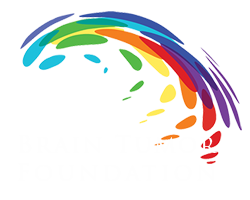where to get support
Living with a brain tumor is difficult both for the patient and their family. A good support system can help give you the strength you need to get through it.
– Unknown
Getting Support
The medical aspects of your case will be taken care of with extreme detail. Surgery, follow up treatment that may be needed such as chemotherapy and radiation and any additional testing required will all be managed by your team of doctors.
It is important to remember that in addition to your physical health, attention must be paid to your emotional needs as well. These are all new issues that you are facing and it can begin to feel very overwhelming. Ask for help if you need it. Support groups are an excellent resource and these days, patients have the alternative of getting telephone and online support when traveling is not an option.
BTF Support Groups
Invisible First Item
MALIGNANT BRAIN TUMOR SUPPORT GROUP
The Brain Tumor Foundation will offer a free Zoom support group for people with malignant brain tumors.
The First Monday Of The Month At Noon (EST)
Pre-registration is required. To register, please contact Gerry at 212.265.2401 or e-mail gerry@
This group will be moderated by a licensed social worker.
Face to Face Support Groups
The Brain Tumor Foundation provides this state-by-state list of organizations across the country that sponsor support groups for brain tumor patients, survivors and caregivers. To submit a group to be posted, or to let us know about any group updates, please contact us at 212.265-2401.
Invisible First Item
ARIZONA
Grey Matters Foundation
Barrow Neurological Institute
St. Joes Hospital
28905 N. 65th St.
Cave Creek, AZ 85331
For information on our virtual support meetings, visit
Graymattersfoundation.org and go to the Resources section.
Registration is required.
Southern Arizona Brain Tumor Support
Co-sponsored by the Arizona Cancer Center and the
Social Work Department of the University Medical Center
Arizona Cancer Center
1515 N. Campbell Avenue, Room 2920
Tuscon, AZ
This group is temporarily on hold. Call 520.694.2873 to speak with a social worker for further details.
CALIFORNIA
Cancer Support Community
530 Hampshire Rd.
Santa Barbara, CA
For cancer support visit www.cancersupportvvsb.org or e-mail us
at info@cancersupportvvsb.org. For emergency support,
please call the Support Help Line at 888.793.9355
Thornton Hospital Campus Point Lycan Room,
La Jolla, California
A volunteer run self help group for brain tumor patients, family members and caregivers.
For information on support, contact Barbara Weinman at 858.484.9549
Cancer Support Community
1990 South Bundy Drive, Suite 100,
Los Angeles, California
The Center is closed due to Covid but support programs are being offered online.
For more info on support visit www.cancersupportla.org or e-mail us
at info@cancersupportla.org
Brain Tumor Center
Offers a pituitary and brain tumor support group for patients, friends and family members.
2200 Santa Monica Boulevard, 2nd Floor,
Santa Monica, California
For information on support, please visit http://www.pacificneuroscienceinstitute.org
CONNECTICUT
Ann’s Place
80 Sawmill Road, Danbury, Connecticut
Offers virtual and in person groups for patients living with cancer as well as caregivers. Registration is required.
For group information visit: annsplace.org
Or call 203.790.6568.
FLORIDA
Florida Brain Tumor Association
Gulf Coast Branch Support Group
5965 Adele Court
Ft. Meyers, FL 33919
All groups have been suspended. For further updates
contact: Donna Ross, 239.433.4396
MASSACHUSETTS
Parent Education/Support Group
(for parents of children with brain tumors)
Dana Farber Cancer Institute, Smith Family Rm.
44 Binney St.
Meets: Call for details
Contact: Heather Budd, 617.632.4217
My Caring Plan
Cambridge, MA 02140
Visit our website at https://www.mycaringplan.com/
For additional information, Contact mailto:support@mycaringplan.com
Massachusetts General Hospital
Brain Tumor Patient and Caregiver Support Group
Meets VIRTUALLY the 2nd and 4th Monday of each month.
FOR MASSACHUSETTS RESIDENTS ONLY.
Dana Farber Cancer Institute
Brain Tumor Support Group for adult patients and their caregivers
Please call Benjamin Pearce to register. 617.632.4236
NEW JERSEY
Carole G Simon Cancer Clinic
99 Beauvoir Avenue
Summit, NJ 07901
Contact: Janet at 988.522.5159
Central New Jersey Brain Tumor Support Group
300 Clinton Ave.
North Plainfield, NJ 07060
Meets: 1st Thursday of each month at 7:00 pm via Zoom
Contact: Stan at 908.685.0917
NEW YORK
Brain Tumor Support Group
Northwell of Manhasset Hospital
300 Community Dr
Manhasset, NY 11030
Virtual support group for patients with brain aneurysms. Held monthly on Tuesdays
Contact Gabrielle for more details at 516.562.4772 or at gmauro@northwell.edu
Brain Tumor Caregiver Support Group
CancerCare, offers a free 15-week online support group for Caregivers of patients with malignant brain tumors.
Start Date: February 1st, 2024 (Group accepts new members after start date.)
This online group is a safe, confidential space where caregivers can give and receive support, information and guidance at their convenience.
Click here for more information:
Pre-registration is required
Young Adult Brain Tumor Caregiver Support Group
CancerCare, offers a free 15-week online support group for young adult caregivers (ages 20-39) of patients with malignant brain tumors.
Start Date: February 1st, 2024 (Group accepts new members after start date.)
This online group is a safe, confidential space where young adult caregivers can give and receive support, information and guidance at their convenience.
Click here for more information:
Pre-registration is required
Support Group for Patients with Glioblastomas
Mount Sinai Hospital
First Thursday of Every Month
1-2 PM
Click here for more information:
MS GBMSupportGroup (004)
NORTH CAROLINA
Novant Health Cancer Institute/Buddy Kemp Cancer Support Center
242 Colonial Ave.
Charlotte, NC 28207
Now holding virtual meetings for cancer
Patients. Individual counseling for brain tumor patients.
Contact: Tiffany Young at 704.384.5229 for more information
OHIO
Cancer Support Community – Lynn Stern Center
A VIRTUAL professionally facilitated brain tumor networking group
for individuals with brain tumors and their loved ones.
4918 Cooper Road, Blue Ash, Ohio
Meets the 3rd Tuesday of each month
To register visit www.mycancersupportcommunity.org
OREGON
Legacy Health
1130 NW 22nd Street, Room 219, Portland , Oregon
Patients and families are welcome.
First Wednesday of the month, 4 – 5:30 PM. These groups are virtual.
For additional info call Group Facilitators, Annette Raab at 503.413.7259 or Sara Butler at 503.413.7932
PENNSYLVANIA
Penn Medicine
Brain Tumor Support Groups are Virtual, held the second Wednesday of the month.
For information and registration, contact Arbena Merolli Tretin at 215.349.5426
Jefferson Hospital for Neuroscience, 3rd Floor Conference Room
900 Walnut Street, Philadelphia, Pennsylvania
Offers a brain tumor support group for patients and family members. Free parking.
Most park in the garage attached to Jefferson Hospital for Neuroscience, the entrance is on 9th at Locust Street.
Meets: 2nd Thursday of the Month, 7 – 8:30 p.m. except July and August
Contact: Joseph McBride, BA, BSN, RN at 215.955.4429 or
joseph.mcbride@jeffersonhospital.org or Katlyn Salvatore, BSN, RN at 215.955.4429
or katlyn.salvatore@jefferson.edu
TEXAS
Houston Area Brain Tumor Network Support Group
The University of Texas M.D. Anderson Cancer Center
1515 Holcombe Blvd.
Houston, TX 77030
All groups are now virtual. FOR MD ANDERSON PATIENTS ONLY.
Please call your social worker for details.
San Antonio and Surrounding Area Brain Tumor Group
Health South Riosa
9119 Cinnamon Hill
San Antonio, TX 78229
Groups are Virtual
Contact: Teresa Zdansky, 210.386.5608 for details
Houston Methodist Hospital
6565 Fannin Street, Houston, Texas
Informative and supportive group that welcomes patients, family members, caregivers and health care professionals. Parking is free. Meetings are being held virtually.
VIRGINIA
Wellspring
525 Amherst Street, Conference Room, Winchester, Virginia
Offers both face to face and virtual support groups.
For information visit https://www.valleyhealthlink.com/our-services/cancer-care/
Online Support Groups
The Brain Tumor Foundation provides this state-by-state list of organizations across the country that sponsor online support groups for brain tumor patients, survivors and caregivers. To submit a group to be posted, or to let us know about any group updates, please contact us at 212.265.2401.
Invisible First Item
CLEVELAND CLINIC ONLINE HEALTH CHATS
Get answers to your health questions and concerns as part of live chats led by Cleveland Clinic physicians and health educators.
Cleveland Clinic Online Health Chats
Upcoming chat on Friday, July 16 at 12 Noon (Eastern time):
Adult Brain Tumor Metastasis with Gene Barnett, MD, FACS.
BRAINSTEM GLIOMA MAILING LIST
A group of brainstem glioma patients, parents, caregivers and medical professionals who exchange messages on the internet. Everyone is welcome to join.
Contact the Brainstem Glioma Mailing List
HYPOTHALAMIC HAMARTOMA SUPPORT GROUP
Contact rwdavis@logan.net or llamp@ior.com
Once you choose hope, anything is possible.
– Christopher Reeve
Caregiver Support
The role of caregiver in a patient’s life is critical and comes with a myriad of challenges that can often become overwhelming.
Caregivers not only face the physical demands of caring for a patient but are also called upon to provide the emotional support that is so often needed. Caregivers themselves however, often ride an emotional roller coaster, running the gamut from sadness, to anger and worry. It is difficult to watch someone you care about experience the ups and downs that come with so many illnesses. Here are a few tips that will help you better cope as you take on your new role:
Become informed.
Knowledge is power.
- Educate yourself. Know the diagnosis and tumor type.
- Know the patient’s treatment plan and which side effects may occur.
- Keep a list of all medications, side effects and allergies. This will come in handy for any doctor you are dealing with and it is also a critical reference should an emergency situation develop.
Ask for help.
Talk with family members and friends and discuss their availability.
Very often you may find one or two who are willing to become part of your ‘health team’. They may be able to help run errands or visit with the patient so that you can free up some time.
Even a brief respite will help.
Take care.
In order to be fully able to care for your loved one, you must first take care of yourself.
- Try as much as you can to keep up with your own medical needs – doctor and dental appointments.
- Eat properly and keep hydrated.
- Be aware. Most likely, you are feeling very stressed. If you feel you are on overload, talk with a friend, spiritual advisor or social worker. Because the role of caregiver is such a demanding one, very often online support groups or counseling may be an easier way to get the emotional help you need.
End of Life Support
Patients with serious illnesses require more than the specialized medical care initially sought. This is where palliative care is crucial. The focus of palliative care is to provide relief from the severe pains and stresses of the illness. Quality of life for both the patient and the family are the primary goal.
This means having a specialized team focusing on symptoms: pain, fatigue, difficulty breathing, digestive issues (nausea, constipation, diarrhea), anxiety and depression.
With palliative care, the patient’s doctors, nurses, and social workers are directly involved, as are massage therapists, acupuncturists and nutritionists. These professionals help you and your loved one mitigate the difficult and often frightening waves of this disease.
Hospice Care.
Discussion about hospice care usually will be initiated by your healthcare professional, but if you feel it needs to be broached – and hasn’t – the patient and their loved ones should bring up the topic. It is important for you to understand that considering hospice care is not anywhere close to “giving up.” It is simply a conversation to be sure that the patient and loved ones will receive the best care – and therefore ensure the best quality of life for the patient.
Provision of hospice care involves members from a number of sources:
- Medical professionals such as primary care physicians and hospice nurses are specially trained to approach the needs of patients with a terminal illness.
- Chaplains and spiritual counselors, to provide spiritual guidance and support
- Oncology social workers, to provide emotional support and counseling as the patient confronts end-of-life issues.
- Home-health aides, to provide assistance with everyday tasks such as bathing, dressing, eating.
- Volunteers to help with tasks such as grocery shopping, trips to the pharmacy or household tasks.
Hospice care can be at the patient’s home, but there are other settings – nursing home, hospital or medical center – that have a specific department for hospice care. Services that the patient and family can expect from hospice care include: medication, medical supplies and equipment, emotional and spiritual support, respite care (a break for the caregiver/family member), household tasks, and bereavement counseling.
Your medical professional team may refer you to a hospice provider, or you can search for hospice in your area at www.hospicedirectory.orgor call 411 for further assistance.
Payment for hospice care is covered by most insurance plans. However some plans may have a per diem rate or a cap on how much will be covered. It is recommended that you check with theMedicare Hospice Benefit program and also that you check with www.hospicedirectory.org to find out if there is Medicaid-certified hospice care offered by your state. (Note: there is a difference between Medicare and Medicaid, see insurance tips).
Resource Links
These resources are regularly reviewed to ensure that links still work correctly and the resources listed continue to be helpful to our visitors. If you find that a link isn’t working or information is incorrect or you’d like to have your organization listed here, please email gerry@braintumorfoundation.org
– Louisa May Alcott
www.cancer.org
Cancer.net is a resource for direct and accurate information about cancer treatment based on the expertise of clinical oncologists.
www.cancer.net
CancerCare provides free, professional counseling and support groups to individuals, families, caregivers, and the bereaved. CancerCare’s Co· Payment Assistance Foundation, www.cancercarecopay.org
www.cancercare.org
888.793.9355
CSC provides support, education and hope to all people affected by cancer, including personalized services at no cost.
www.cancersupportcommunity.org
Offers personal, private, free websites to help keep your family and friends connected throughout your cancer journey.
www.caringbridge.org
A program of the National Hospice and Palliative Care Organization (NHPCO), is a national consumer and community initiative to improve care at the end of life.
www.caringinfo.org
Provides support specifically for familial caregivers.
www.caregiver.org
One of the largest single sources of information and tools for caregivers and seniors in the country.
www.caregiverslibrary.org
T.H.E. Brain Trust runs online support groups and forums for discussion on all brain tumors for patients, providers, researchers, educators and caregivers.
www.braintrust.org
Educates, supports, empowers, and advocates for caregivers of loved ones with a chronic illness or disability.
www.thefamilycaregiver.org
The first national magazine dedicated to caregivers.
www.caregiver.com
Visiting Nurses Association of America helps patients and their caregivers find local Visiting Nurses Associations, which bring home healthcare to individuals in their respective communities.
www.vnaa.org

Call for a referral

Stay informed
Sign up for BTF news and events

Donate
Help us help others
©2023 Brain Tumor Foundation | 212.265.2401
